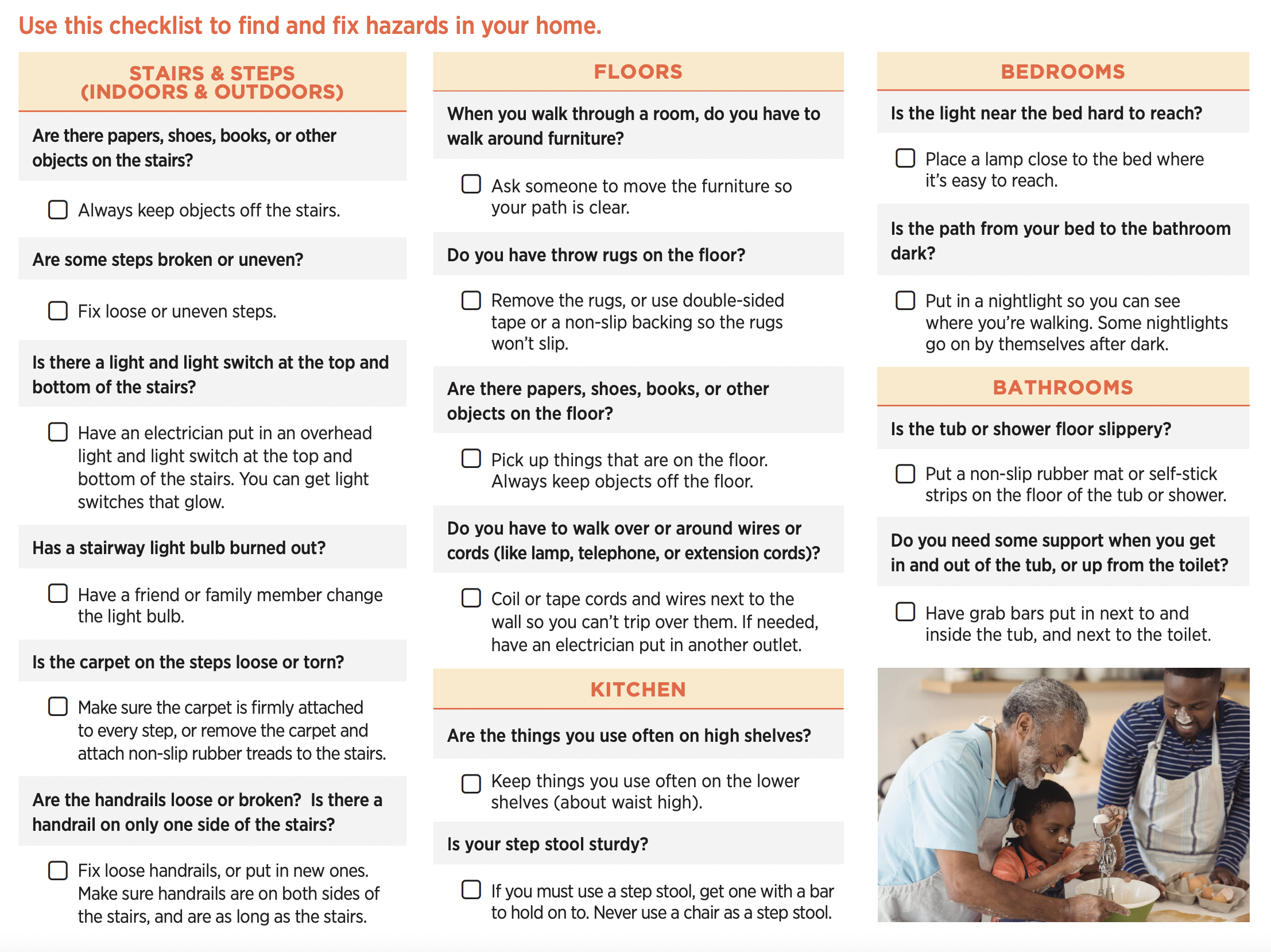Excitement About Dementia Fall Risk
Excitement About Dementia Fall Risk
Blog Article
Our Dementia Fall Risk PDFs
Table of ContentsFascination About Dementia Fall RiskSome Known Factual Statements About Dementia Fall Risk 9 Easy Facts About Dementia Fall Risk ShownGet This Report on Dementia Fall RiskDementia Fall Risk Fundamentals Explained
The FRAT has three sections: drop threat status, danger factor checklist, and action plan. An Autumn Danger Standing includes data about history of current drops, medications, emotional and cognitive standing of the client - Dementia Fall Risk.If the client ratings on a threat element, the matching number of factors are counted to the person's fall danger rating in the box to the much. If a patient's autumn danger rating completes five or higher, the individual is at high danger for drops. If the person scores only four points or reduced, they are still at some threat of falling, and the nurse should utilize their ideal clinical assessment to handle all autumn danger aspects as component of an all natural treatment strategy.
These standard strategies, in basic, assist establish a risk-free setting that decreases unintentional drops and defines core preventive procedures for all clients. Indicators are important for patients at threat for falls.
The 5-Second Trick For Dementia Fall Risk
Wristbands should include the individual's last and very first name, day of birth, and NHS number in the UK. Just red color should be used to signal special patient status.
Products that are too far may require the client to get to out or ambulate unnecessarily and can potentially be a risk or add to falls. Helps prevent the person from going out of bed without any type of help. Nurses reply to fallers' call lights faster than they do to lights initiated by non-fallers.
Aesthetic disability can greatly create falls. Keeping the beds closer to the flooring reduces the threat of drops and major injury. Placing the cushion on the flooring significantly lowers loss danger in some healthcare setups.
The Of Dementia Fall Risk
Patients who are high and with weak leg muscular tissues who try to rest on the bed from a standing position are most likely to drop onto the bed because it's as well reduced for them to lower themselves safely. If a tall client efforts to obtain up from a reduced bed without aid, the patient is likely to fall back down onto the bed or miss the bed and fall onto the floor.
They're created to advertise prompt rescue, not to protect against falls from bed. Audible alarms can also remind the redirected here individual not to obtain up alone. The usage of alarm systems can additionally be a replacement for physical restraints. Besides bed alarms, boosted guidance for risky patients also may help prevent drops.

Individuals with an evasion gait increase fall opportunities substantially. To lower read here autumn risk, footwear must be with a little to no heel, thin soles view website with slip-resistant step, and support the ankles.
Some Known Factual Statements About Dementia Fall Risk
Patients, particularly older grownups, have minimized visual capability. Lights an unknown setting helps boost exposure if the patient have to rise at evening. In a research study, homes with ample lights record less falls (Ramulu et al., 2021). Renovation in illumination at home may lower fall prices in older adults (Dementia Fall Risk). The use of stride belts by all wellness care carriers can promote safety and security when assisting clients with transfers from bed to chair.
.png)
Caretakers are effective for guaranteeing a safe, secured, and safe environment. Research studies showed really low-certainty proof that sitters reduce fall threat in severe care hospitals and just moderate-certainty that choices like video clip monitoring can reduce caretaker use without increasing loss threat, suggesting that sitters are not as valuable as at first believed (Greely et al., 2020).
Dementia Fall Risk for Beginners

Enhanced physical fitness reduces the risk for drops and limits injury that is received when autumn takes place. Land and water-based workout programs may be in a similar way helpful on balance and stride and thereby lower the risk for drops. Water workout may add a positive advantage on equilibrium and gait for females 65 years and older.
Chair Rise Workout is an easy sit-to-stand workout that helps enhance the muscles in the upper legs and butts and improves flexibility and self-reliance. The goal is to do Chair Increase workouts without utilizing hands as the client ends up being stronger. See sources section for a thorough instruction on exactly how to execute Chair Rise exercise.
Report this page